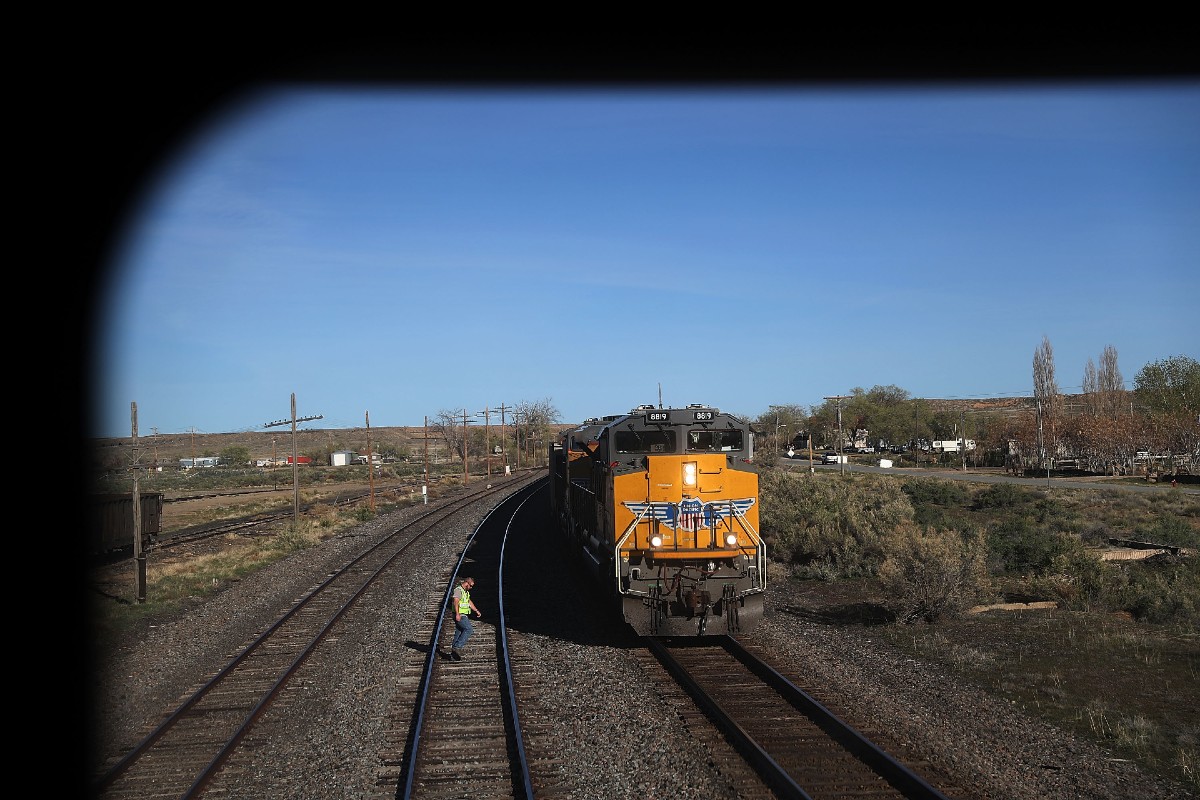The threat of a freight rail strike is back in the air after the third largest union of workers voted against the contract improvement proposal that the companies in the sector did.
About 56% of union representatives from the section of road maintenance workers voted against the contract that the companies put on the table to avoid a strike last September.
The negotiations have been a very complex process, since a strike in the sector would mean a further blow to supply chains which have barely begun to recover from the difficulties of the pandemic and also for the economy, threatened by a recession.
Railway workers are clear about the strategic role they currently have in the country’s economic development, and that is why Union representations have taken negotiations to the extreme.
This Monday it was the union of the Brotherhood of Maintenance of Way Employees Division, which rejected the proposed five-year contract a 24% increase in salary and $5,000 bonus for the workers.
Although the offer seemed attractive and has already been approved by several of the unions in the sector, the president of the Division of Employees of the Brotherhood of Maintenance of Way, Tony Cardwell, considers that the companies forgot to meet the demands to improve working conditions from the workers.
He explained that the companies did not respond to the claims about lack of paid time off the time off due to illness and the complicated working conditions that the industry has experienced with massive layoffs in the last six years, according to a report by CNBC.
“They resent the fact that that management does not take into account their quality of life illustrated by his stubborn reluctance to provide increased amounts of paid time off, especially sick time,” Cardwell said in a statement.
“The railwaymen are discouraged and upset with working conditions and compensation, and they hold their employer in low regard. The railwaymen do not feel valued,” he abounded.
According to the Association of American Railroads, a strike in the sector would cost $2 billion a day.
What state are the negotiations in?
Unlike the rejection of track maintenance workers, four other unions in the sector have already approved the proposal of contractual improvements made by the railroad companies.
On the employer side, BNSF, Union Pacific, Kansas City Southern, CSX and Norfolk Southern participate, while the workers there are 12 unions representing at least 115,000 members.
To avoid a strike that paralyzes the economy, it is necessary that the 12 unions give their approval to the contractual proposals before the middle of next November.
The negotiations have taken steps forward and others backward to renegotiate the proposal with unions with particular demands, such as the International Association of Machinists and Aerospace Workers, which initially rejected the agreement, but then entered a new stage of negotiation.
This is just the way the Brotherhood of Maintenance of Way Employees Division will move forward once it voted against the settlement with the companies.
In fact, there is a prior agreement to avoid a strike for up to five days before Congress meets again to give time for new negotiations, after the rejection.
Last September, President Joe Biden had to intervene to pressure both parties to advance in the negotiation of a contractual proposal and avoid a railway strike that would strongly affect the economy, since hundreds of companies depend on rail freight transport to move their goods.

